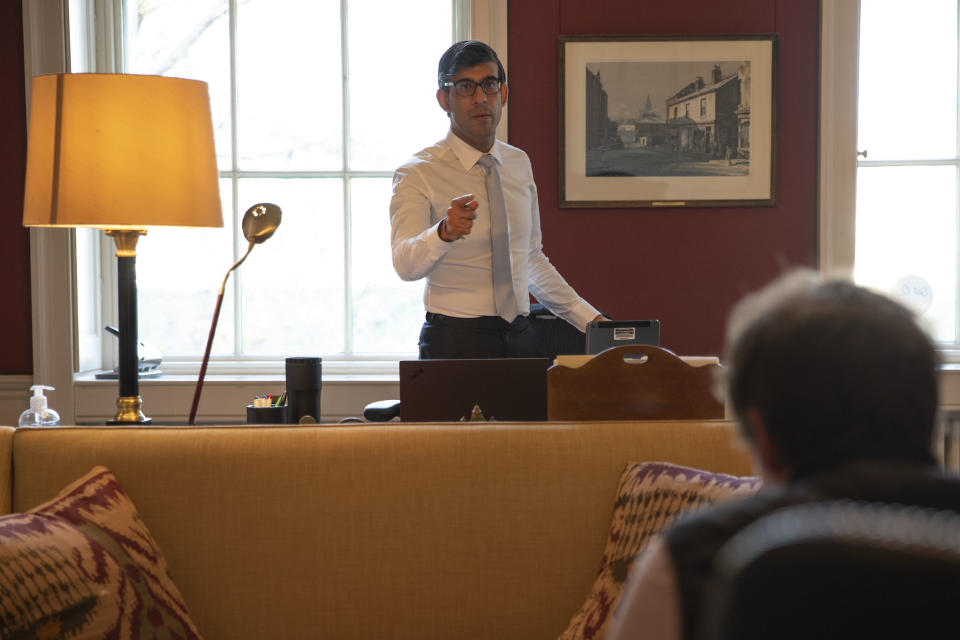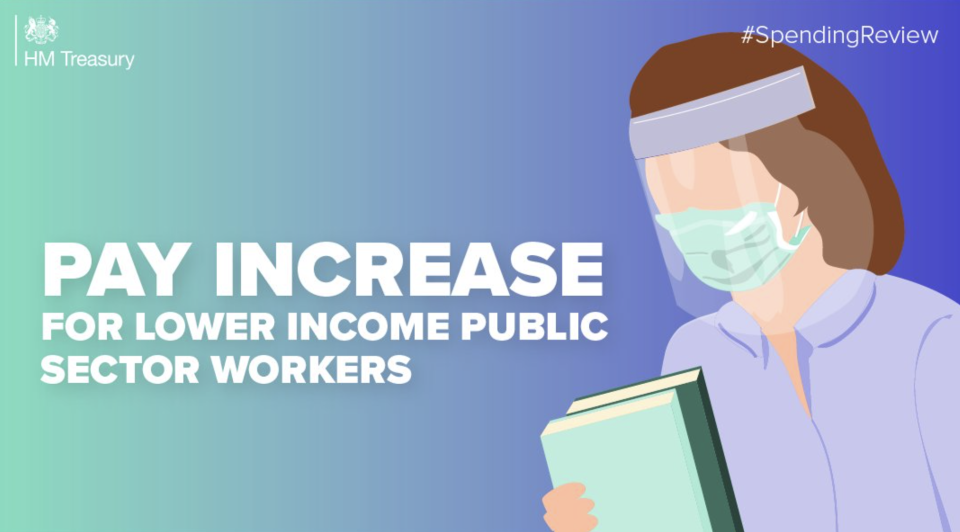Minimum wage hike for two million workers as public sector pay freeze confirmed

UK chancellor Rishi Sunak has announced the legal minimum wage will rise by 2.2% next year, marking a pay rise for around two million workers.
But he confirmed on Wednesday pay will be frozen across the public sector, with the exception of both NHS workers and staff earning below the median average of £24,000 ($31,760) a year.
Lower-paid public sector staff have been promised a rise of at least £250, with Sunak suggesting the majority of public sector workers would still receive some increase despite the freeze.
READ MORE: Chancellor Rishi Sunak warns 'economic emergency has only just begun'
The chancellor said he accepted the Low Pay Commission’s recommendation that the UK’s legal wage floor, rebranded as the National Living Wage, should rise to £8.91 an hour. It will be extended to those aged 23 and over rather than 25 as at present, while the minimum wage for younger workers will also be increased.
Delivering his spending review to MPs in the Commons on Wednesday, Sunak said the average worker full-time on the National Living Wage would see their annual income rise by around £345.

But the rise is significantly lower than the 5.6% hike previously proposed by the pay advisory body, which would have taken the rate to £9.21 an hour. The Times reports the commission slashed its proposed rate amid concerns such a hike could prove too damaging for employers struggling through the pandemic.
READ MORE: Rishi Sunak pledges £2.9bn to help unemployed find work
“Workers on the national minimum wage – not least the two million who are key workers – have been let down by the government’s decision to row back on the full planned rise they were promised,” said the Trades Union Congress (TUC) on Twitter.
The spending review sets out the budgets and day-to-day spending plans that have been agreed between UK government departments and the Treasury in recent months.
The review typically cover several years to enable longer-term planning. But Sunak has cited the government’s focus on tackling the pandemic and safeguarding jobs in the short-term in defence of his decision to only set budgets for a single year.
WATCH: UK economy to shrink 11.3% this year — as Rishi Sunak commits nearly £300bn to COVID crisis
Sunak told MPs the government’s support to “get our country through coronavirus” totalled £280bn.
Other announcements include £3bn ($4bn) for the NHS to deal with the crisis. The funds are to tackle not only COVID-19 pressures and linked mental health issues, but also include £1bn to help reduce backlogs of checks, scans, and operations for other health problems.
The chancellor has said jobs are his priority in the review, with £2.9bn ($3.86bn) set aside for a “Restart” plan to help more than 1 million job-hunters find work. Another £1.4bn has been allocated to support Jobcentres with pressures on the rise from higher unemployment, and £1.6bn more will be ploughed into government-funded, “Kickstart” youth employment placements.
Meanwhile an extra £151m has been handed to services to help rough sleepers off the streets, £275m for UK courts to deal with huge COVID-19 backlogs, and tens of millions will fund a new counter-terrorism HQ.
Sunak promised “once-in-a-generation investment” in infrastructure, with cash for roads, hospital, schools, and prisons.
WATCH: Public sector pay restraint ‘irresponsible,’ Labour warns

 Yahoo Sport
Yahoo Sport 





































